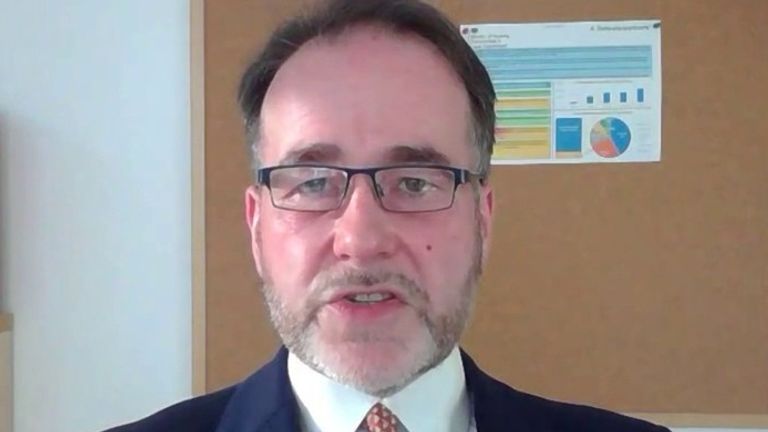House prices rose at their fastest annual pace in more than six years in February, the month before the chancellor extended the stamp duty holiday for buyers in England and Northern Ireland.
The Office for National Statistics (ONS) reported growth of 8.6% over the 12 months.
The figures showed it was the highest rate since October 2014, leaving the average house price at £250,000 – a rise of £20,000 over the 12 months.
While England led the way with 8.7%, all UK regions saw strong rates of annual growth.
Wales recorded a jump of 8.4% while Scotland and Northern Ireland saw prices jump by 8% and 5.3% respectively.
Each has benefited from national government-led stimulus to bolster activity and counter the effects of the COVID-19 crisis.
While support in Scotland ended at the end of March, chancellor Rishi Sunak announced at the budget that England and Northern Ireland would continue to benefit from a stamp duty holiday beyond the end of March to 30 June.
From 1 July, the threshold from which the tax becomes payable falls to £250,000 from the current £500,000.
It reverts back to the usual level of £125,000 from October.
Support in Wales is due to end on 30 June.
Tax holidays and pent-up demand have combined to drive extraordinary levels of activity, according to the most recent data, with buyers clamouring for properties with outdoor space.
Separate figures from HM Revenue and Customs showed sales were around double the number seen in March 2020 last month, reporting 190,980 completions.
The property website Rightmove said on Monday that asking prices had leapt by more than 2% in just a month as a result of the frenzy.
Its report was released on the same day that the government moved to give additional help to people to buy their own home through a Treasury-backed mortgage scheme offering deals with deposits as low as 5%.
George Franks, co-founder of London-based estate agents Radstock Property, described the stamp duty holiday as “the bricks and mortar equivalent of steroids” in terms of its effect on the property market.
He added: “Demand has gone through the roof and that, coupled with exceptionally competitive mortgages rates and low supply, has driven average prices ever higher.
“Yes, tax hikes and rising unemployment will almost certainly temper demand at some point, but changing living requirements will counteract that to an extent.”







